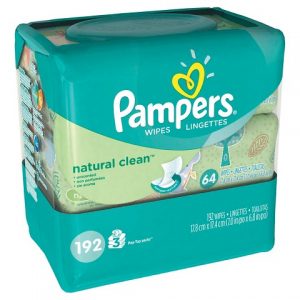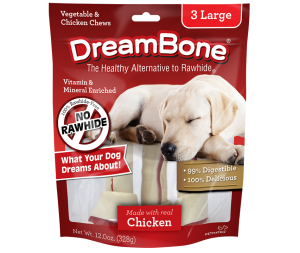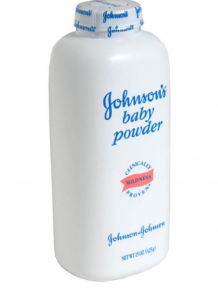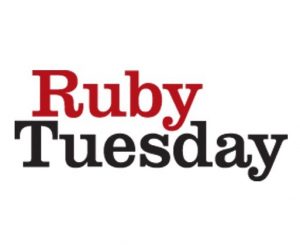 Top Class Action Lawsuits
Top Class Action Lawsuits
Bad Apple, Again? Yet another lawsuit against Apple, this one set to take a bite over allegations of consumer fraud surrounding devices that are replaced via AppleCare+ warranty with refurbished replacements that don’t meet a specific clause in the contract.
Filed in California, on behalf of plaintiff Vicky Maldonado and others similarly situated, the proposed class action alleges the clause claiming refurbished devices are “equivalent to new in performance and reliability” is false.
According to the Apple lawsuit allegations, a refurbished device is a “secondhand unit that has been modified to appear to be new” and therefore can’t be equivalent in durability and functionality as a new unit. Maldonado filed the suit after she purchased a third generation iPad and then cracked the screen after owning it for six months.
As the damage to Maldonado’s iPad was accidental in nature, she was forced to replace her tablet at an out of pocket cost of $250, according to the suit. However, she was told that for another $100 the AppleCare+ program would replace the tablet if similarly damaged in the future. Allegedly, the replacement iPad Maldonado was given under the warranty did not function properly and since it had impaired functionality, the tablet wasn’t equivalent to new, the suit asserts.
Following this, in 2013 Maldonado bought another iPad, a fourth generation model. She claims that she wasn’t informed that she would get a refurbished device if she damaged the tablet. When she tried to get a repair for the device in May 2015, she was given a refurbished device instead. According to court filings, she claims the device she received wasn’t equivalent to that of a new device either in performance or reliability.
Policy Policing Needed? Blue Shield got slapped with a consumer fraud class action lawsuit this week, filed by enrollees who allege the insurer owes its members another $35 million in rebates due to errors in its medical-loss ratio calculation of 2014. That’s some accounting error, if true…
Brought by plaintiffs Becky Ebenkamp and Rebecca Morris, the Blue Shield class action lawsuit seeks to represent more than 446,000 individual policy holders from that year.
According to federal law, insurers are required to issue refunds if they don’t spend at least 80 percent of premium dollars on medical care or on improving the quality of care. The complaint alleges Blue Shield improperly counted certain payments as medical expenses it had made erroneously in 2014 to providers who were not in its network and patients whose coverage had lapsed. By counting those mistaken payments as legitimate medical expenses, Blue Shield pushed itself closer to the 80 percent threshold, thus reducing the size of the refunds it owed, according to the complaint.
The lawsuit states that under the consumer refund rule, those payments should have been logged as administrative expenses, and Blue Shield customers are therefore entitled to a bigger refund.
The rebate rule, part of the Affordable Care Act, is intended to contain the cost of health coverage by limiting the share of premiums insurers can spend on administrative functions, executive salaries, overhead and profits. If an insurer spends only 75 percent of premium dollars on care, for example, it must send refund checks to enrollees equal to 5 percent of the premiums they paid.
Who knew? Ah, precisely.
Top Settlements
Herbalife to Pay Up…Remember that old adage, if it sounds too good to be true? Well, Herbalife International of America, Inc., Herbalife International, Inc., and Herbalife, Ltd. have agreed to fully restructure their US business operations and pay $200 million to compensate consumers to settle Federal Trade Commission (FTC) consumer fraud charges that the companies deceived consumers into believing they could earn substantial money selling diet, nutritional supplement, and personal care products.
In its complaint against Herbalife, the FTC also charged that the multi-level marketing company’s compensation structure was unfair because it rewards distributors for recruiting others to join and purchase products in order to advance in the marketing program, rather than in response to actual retail demand for the product, causing substantial economic injury to many of its distributors.
According to the FTC’s complaint, Herbalife claims that people who participate can expect to quit their jobs, earn thousands of dollars a month, make a career-level income, or even get rich. But the truth, as alleged in the FTC complaint, is that the overwhelming majority of distributors who pursue the business opportunity earn little or no money.
For example, as stated in the complaint, the average amount that more than half the distributors known as “sales leaders” received as reward payments from Herbalife was under $300 for 2014. According to a survey Herbalife itself conducted, which is described in the complaint, Nutrition Club owners spent an average of about $8,500 to open a club, and 57 percent of club owners reported making no profit or losing money.
The small minority of distributors who do make a lot of money, according to the complaint, are compensated for recruiting new distributors, regardless of whether those recruits can sell the products they are encouraged to buy from Herbalife.
Finding themselves unable to make money, the FTC’s complaint alleges, Herbalife distributors abandon Herbalife in large numbers. The majority of them stop ordering products within their first year, and nearly half of the entire Herbalife distributor base quits in any given year.
The Herbalife settlement requires Herbalife to revamp its compensation system so that it rewards retail sales to customers and eliminates the incentives in its current system that reward distributors primarily for recruiting. It mandates a new compensation structure in which success depends on whether participants sell Herbalife products, not on whether they buy products.
The settlement also prohibits Herbalife from misrepresenting distributors’ potential or likely earnings. The order specifically prohibits Herbalife from claiming that members can “quit their job” or otherwise enjoy a lavish lifestyle.
In addition, the order imposes a $200 million judgment against Herbalife to provide consumer redress, including money for consumers who purchased large quantities of Herbalife products (such as many Nutrition Club owners, among others) and lost money. Information on the FTC’s redress program will be announced at a later date.
Ok, that’s a wrap folks… See you at the Bar!

 Top Class Action Lawsuits
Top Class Action Lawsuits Top Class Action Lawsuits
Top Class Action Lawsuits Top Class Action Lawsuits
Top Class Action Lawsuits Top Class Action Lawsuits
Top Class Action Lawsuits Top Class Action Lawsuits
Top Class Action Lawsuits Top Class Action Lawsuits
Top Class Action Lawsuits Top Class Action Lawsuits
Top Class Action Lawsuits Top Class Action Lawsuits
Top Class Action Lawsuits Top Class Action Lawsuits
Top Class Action Lawsuits